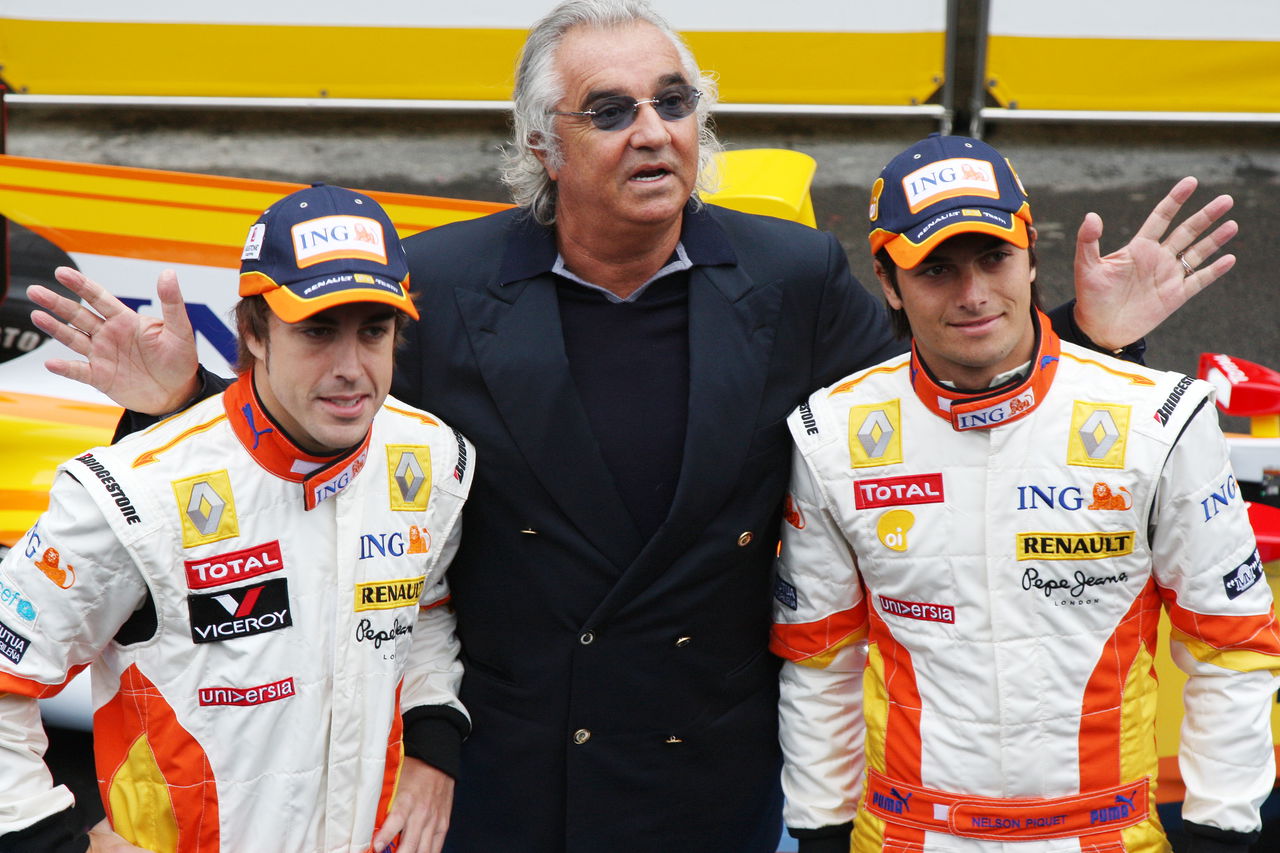Flavio Briatore has denied ever instructing Nelson Piquet Jr. to deliberately crash in order to help Renault win the 2008 F1 Singapore Grand Prix. The controversy, known as “Crash Gate,” emerged in 2009 when Piquet revealed that Briatore, then Renault’s team principal, suggested staging a crash to influence the race outcome. On the 15th lap of the race, Piquet crashed, triggering a safety car that allowed teammate Fernando Alonso to climb from 15th on the grid to victory, securing Renault and Briatore’s first win of the season.
A year later, Piquet was dismissed mid-season by Renault while Briatore remained in charge. Following an investigation, Briatore and technical director Pat Symonds faced bans from the sport. Initially, Briatore received a lifetime ban, which was later overturned, while Symonds was suspended for five years before returning to F1 with Williams.
In an interview with Corriere Della Sera, Briatore denied having spoken much with Piquet during his tenure, stating, “No, I’m not interested. I didn’t tell him much when he was driving for me,” and noted that a French court overturned his FIA ban, awarding him symbolic compensation. He reflected that he left F1 because he was tired of it, having won everything and having started a new driver’s career, adding that the birth of his son made him prioritize family.
Recently, Briatore has made a comeback in Formula 1 as the executive director at Alpine, where he plays a crucial role in key decisions such as signing driver Franco Colapinto and the team’s 2026 customer status. The “Crash Gate” scandal still casts a shadow over the sport, affecting perceptions of Felipe Massa’s 2008 title challenge, as the safety car period caused by the crash undeniably impacted the race’s outcome.
Fan Take: This scandal remains one of the darkest chapters in F1, highlighting the lengths teams have gone to gain an edge. For racing fans, it serves as a reminder of the importance of integrity in the sport and the lasting effects one moment can have on championship legacies.


